 March
24, 2021.
One of our
graduates,
Ojiugo
Ajunwa,
has
published
the article
“Pushing women to break gender
barriers” in The Nation.
Article summary: What
Nigerian women are highly
entrepreneurial has never
been in doubt. Across all the
sectors, successful women entrepreneurs
dot the business landscape. However, many
of them still face formidable
challenges such as lack of access
to capital and meaningful
mentoring, which, sometimes,
limit their capacity to compete
with their male counterparts.
Mrs. Ajunwa said she
believes that building robust
business networks are important,
but women should start
with smaller networks and
then expand. She also said
collaboration and bringing a
different set of values to the
workplace such belief in teamwork
and creating a positive,
communal work culture are
also key.
Find the article here:
https://
thenationonlineng.net/pushing-women-
to-break-gender-barriers/
Ojiugo Ajunwa has completed
a Doctorate program in
Project Management at Atlantic
International University.
March
24, 2021.
One of our
graduates,
Ojiugo
Ajunwa,
has
published
the article
“Pushing women to break gender
barriers” in The Nation.
Article summary: What
Nigerian women are highly
entrepreneurial has never
been in doubt. Across all the
sectors, successful women entrepreneurs
dot the business landscape. However, many
of them still face formidable
challenges such as lack of access
to capital and meaningful
mentoring, which, sometimes,
limit their capacity to compete
with their male counterparts.
Mrs. Ajunwa said she
believes that building robust
business networks are important,
but women should start
with smaller networks and
then expand. She also said
collaboration and bringing a
different set of values to the
workplace such belief in teamwork
and creating a positive,
communal work culture are
also key.
Find the article here:
https://
thenationonlineng.net/pushing-women-
to-break-gender-barriers/
Ojiugo Ajunwa has completed
a Doctorate program in
Project Management at Atlantic
International University.
 March 27, 2021. Dr.
Ricardo Gonzalez,
AIU’s Provost and
Academic Advisor,
attended a webinar on
Gender Equality: An
intro to the WEPs gender gap
analysis tool on March 25th,
2021. The webinar was focused
on exploring how the American
private sector can best contribute
to gender equality.
The webinar offered an
overview of the women empowerment
principles gender
gap analysis tool (WEPs
Tool), a business-driven tool
designed to help companies
from around the world
assess gender equality
performance across
the workplace, marketplace,
and community.
View the webinar
here:
https://us02web.zoom.
us/rec/share/HcKeSbndfVt27Oh7EUs-
BS9ccM_NTud-a9CmZCDm6WDOaA3ofKWMIPO2TjNh16Nme.
GVKgV2Z3_
s3dY5FQ?startTime=1616691643000
March 27, 2021. Dr.
Ricardo Gonzalez,
AIU’s Provost and
Academic Advisor,
attended a webinar on
Gender Equality: An
intro to the WEPs gender gap
analysis tool on March 25th,
2021. The webinar was focused
on exploring how the American
private sector can best contribute
to gender equality.
The webinar offered an
overview of the women empowerment
principles gender
gap analysis tool (WEPs
Tool), a business-driven tool
designed to help companies
from around the world
assess gender equality
performance across
the workplace, marketplace,
and community.
View the webinar
here:
https://us02web.zoom.
us/rec/share/HcKeSbndfVt27Oh7EUs-
BS9ccM_NTud-a9CmZCDm6WDOaA3ofKWMIPO2TjNh16Nme.
GVKgV2Z3_
s3dY5FQ?startTime=1616691643000
 March 26,
2021. One of
our Academic
Advisors,
Dr. Mohammad
Shahidul
Islam, has recently had one
of his previous research work
accepted for oral presentation
in “ICEECE 2021: International
Conference on Energy,
Environmental and Chemical
Engineering” to be held on
July 15-16, 2021 in Stockholm,
Sweden.
ICEECE 2021 is a highly
prestigious and recognized
conference in the world. His
presentation will be in the
Engineering and Physical Science
research category.
Dr. Mohammad Shahidul
Islam has completed a Doctorate
program in Chemical
Engineering at Atlantic International
University.
March 26,
2021. One of
our Academic
Advisors,
Dr. Mohammad
Shahidul
Islam, has recently had one
of his previous research work
accepted for oral presentation
in “ICEECE 2021: International
Conference on Energy,
Environmental and Chemical
Engineering” to be held on
July 15-16, 2021 in Stockholm,
Sweden.
ICEECE 2021 is a highly
prestigious and recognized
conference in the world. His
presentation will be in the
Engineering and Physical Science
research category.
Dr. Mohammad Shahidul
Islam has completed a Doctorate
program in Chemical
Engineering at Atlantic International
University.
 April 16, 2021. Join us in
congratulating another AIU
alumnus for an outstanding
achievement. An article by
Simon Tuleh was published
in tribute to Dr. Elijah Onyeagba,
Nigeria’s Ambassador
to the Republic of Burundi.
Vanguard News is one of the
leading Newspapers in Nigeria
today. It has developed a rich
heritage as the most entertaining,
refreshing, authoritative,
detailed and reader friendly
newspapers in the country.
In this article, Ambassador
Elijah Onyeagba was highted
as one of the 41 diplomats
appointed by President Muhammadu,
who were posted to
various missions to represent
the country. The article also
noted that he is the plenipotentiary
of the Federal Republic
of Nigeria to the Republic
of Burundi, East Africa.
You can read the rest of
the article on the following
link:
https://www.vanguardngr.
com/2021/04/tribute-to-amb-elijahonyeagba-
nigerias-ambassador-tothe-
republic-of-burundi/
Dr. Elijah Onyeagba completed
a Doctorate program
in Economics at Atlantic
International University. Ambassador Onyeagba, we
wish you the best in all your
future projects and congratulate
you on your achievements.
April 16, 2021. Join us in
congratulating another AIU
alumnus for an outstanding
achievement. An article by
Simon Tuleh was published
in tribute to Dr. Elijah Onyeagba,
Nigeria’s Ambassador
to the Republic of Burundi.
Vanguard News is one of the
leading Newspapers in Nigeria
today. It has developed a rich
heritage as the most entertaining,
refreshing, authoritative,
detailed and reader friendly
newspapers in the country.
In this article, Ambassador
Elijah Onyeagba was highted
as one of the 41 diplomats
appointed by President Muhammadu,
who were posted to
various missions to represent
the country. The article also
noted that he is the plenipotentiary
of the Federal Republic
of Nigeria to the Republic
of Burundi, East Africa.
You can read the rest of
the article on the following
link:
https://www.vanguardngr.
com/2021/04/tribute-to-amb-elijahonyeagba-
nigerias-ambassador-tothe-
republic-of-burundi/
Dr. Elijah Onyeagba completed
a Doctorate program
in Economics at Atlantic
International University. Ambassador Onyeagba, we
wish you the best in all your
future projects and congratulate
you on your achievements.
 April 7, 2021. One of
our students, Shivajee
Sapkota, Team Leader
of HUB Cooperative Service
of Nepal presented
a paper on Digital technologies
for Nepalese
cooperatives on April 2,
2021 on the occasion of
National Cooperative
Day in Nepal. This is the
first program organized in far
western region.
There were around 200 representatives
from the cooperative
leaders and managers to
get idea of latest technologies
for cooperatives to provide
better and quick service to
the member in this pandemic.
HUB cooperative service Ltd
(www.hubcooperative.com) is a
technology service which has
nationwide network for digital
payment, remittance and
mobile banking.
The presentation was
focused on technology adoption
and cashless transaction
of community people from
the cooperatives, branchless
banking and promotion
of mobile banking which
will reduce health risk
and cost in the societies.
A data from national
network of telecommunication
shows the
total user of mobile is
39,988,752 (2020) out
of 26,400,000 population
of Nepal, it means
people has more than one
mobile connection. The
digital payment system for
cooperatives will enable any
members or individual to
perform their transaction or
payment through mobile applications
now.
During the Inaugural session,
vice-chairperson from
the cooperative development
board, member of parliament
from the province, district
administration officer, national
federation members
supported the mission of HUB
cooperatives to digitization
of cooperatives and committed
for its expansion of the
service collaborating with
local authorities to enhance
the capacities of cooperatives
in the region.
Shivajee Sapkota has completed
a Doctorate program in
Human Resources Management
at AIU.
April 7, 2021. One of
our students, Shivajee
Sapkota, Team Leader
of HUB Cooperative Service
of Nepal presented
a paper on Digital technologies
for Nepalese
cooperatives on April 2,
2021 on the occasion of
National Cooperative
Day in Nepal. This is the
first program organized in far
western region.
There were around 200 representatives
from the cooperative
leaders and managers to
get idea of latest technologies
for cooperatives to provide
better and quick service to
the member in this pandemic.
HUB cooperative service Ltd
(www.hubcooperative.com) is a
technology service which has
nationwide network for digital
payment, remittance and
mobile banking.
The presentation was
focused on technology adoption
and cashless transaction
of community people from
the cooperatives, branchless
banking and promotion
of mobile banking which
will reduce health risk
and cost in the societies.
A data from national
network of telecommunication
shows the
total user of mobile is
39,988,752 (2020) out
of 26,400,000 population
of Nepal, it means
people has more than one
mobile connection. The
digital payment system for
cooperatives will enable any
members or individual to
perform their transaction or
payment through mobile applications
now.
During the Inaugural session,
vice-chairperson from
the cooperative development
board, member of parliament
from the province, district
administration officer, national
federation members
supported the mission of HUB
cooperatives to digitization
of cooperatives and committed
for its expansion of the
service collaborating with
local authorities to enhance
the capacities of cooperatives
in the region.
Shivajee Sapkota has completed
a Doctorate program in
Human Resources Management
at AIU.
 Call for Papers
This Conference will be held
21–23 July 2021 at Oxford
Brookes University, Headington
Campus, Oxford, UK.
We invite proposals for paper
presentations, workshops/
interactive sessions, posters/
exhibits, colloquia, focused
discussions, innovation
showcases, virtual posters, or
virtual lightning talks.
2021 Special Focus:
“The opportunities of crisis:
Resilience and change
in world history”
Theme 1: Social and community
studies. Theme 2: Civic
and political studies. Theme
3: Cultural studies. Theme 4:
Global studies. Theme 5: Environmental
Studies. Theme 6:
Organizational studies.
Theme 7: Educational studies.
Theme 8: Communication.
Become a Presenter:
1. Submit a proposal
2. Review timeline
3. Register
Late proposal deadline
21 June 2021
Regular registration deadline
21 June 2021
Visit the website:
https://thesocialsciences.com
Call for Papers
This Conference will be held
21–23 July 2021 at Oxford
Brookes University, Headington
Campus, Oxford, UK.
We invite proposals for paper
presentations, workshops/
interactive sessions, posters/
exhibits, colloquia, focused
discussions, innovation
showcases, virtual posters, or
virtual lightning talks.
2021 Special Focus:
“The opportunities of crisis:
Resilience and change
in world history”
Theme 1: Social and community
studies. Theme 2: Civic
and political studies. Theme
3: Cultural studies. Theme 4:
Global studies. Theme 5: Environmental
Studies. Theme 6:
Organizational studies.
Theme 7: Educational studies.
Theme 8: Communication.
Become a Presenter:
1. Submit a proposal
2. Review timeline
3. Register
Late proposal deadline
21 June 2021
Regular registration deadline
21 June 2021
Visit the website:
https://thesocialsciences.com
 Dr. Joyce Banda
Graduate
This video is about Malawi’s
first female president and Africa’s
second, Dr. Joyce Banda.
She was voted as Africa’s
most powerful woman by Forbes Magazine
for two
years running
and voted as
one of the
most powerful
women in the
world.
She also
created the
Joyce Banda
Foundation, an
organization that is dedicated
to improving the wellbeing of
women and children.
Watch video here:
https://www.aiu.
edu/resources/repvideos/AIU%20STUDENTS%20
BREAKING%20PARADIGMS%20JOYCE%20
BANDA.mp4
Dr. Joyce Banda
Graduate
This video is about Malawi’s
first female president and Africa’s
second, Dr. Joyce Banda.
She was voted as Africa’s
most powerful woman by Forbes Magazine
for two
years running
and voted as
one of the
most powerful
women in the
world.
She also
created the
Joyce Banda
Foundation, an
organization that is dedicated
to improving the wellbeing of
women and children.
Watch video here:
https://www.aiu.
edu/resources/repvideos/AIU%20STUDENTS%20
BREAKING%20PARADIGMS%20JOYCE%20
BANDA.mp4
 Call for Papers
This Conference will be held
5–6 June 2021 at Concordia
University, Montreal, Canada.
We invite proposals for paper
presentations, workshops/
interactive sessions, posters/
exhibits, colloquia, focused
discussions, innovation
showcases, virtual posters, or
virtual lightning talks.
2021 Special Focus:
“Life after pandemic: Towards
a new global biopolitics?”
Theme 1: Networks
of economy and trade.
Theme 2: The power
of institutions.
Theme 3: Vectors of
society and culture.
Theme 4: Ecological
foundations.
Become a Presenter:
1. Submit a proposal
2. Review timeline
3. Register
Late proposal deadline
5 May 2021
Regular registration deadline
5 May 2021
Visit the website:
https://onglobalization.com
Call for Papers
This Conference will be held
5–6 June 2021 at Concordia
University, Montreal, Canada.
We invite proposals for paper
presentations, workshops/
interactive sessions, posters/
exhibits, colloquia, focused
discussions, innovation
showcases, virtual posters, or
virtual lightning talks.
2021 Special Focus:
“Life after pandemic: Towards
a new global biopolitics?”
Theme 1: Networks
of economy and trade.
Theme 2: The power
of institutions.
Theme 3: Vectors of
society and culture.
Theme 4: Ecological
foundations.
Become a Presenter:
1. Submit a proposal
2. Review timeline
3. Register
Late proposal deadline
5 May 2021
Regular registration deadline
5 May 2021
Visit the website:
https://onglobalization.com
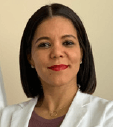 SUMMA CUM LAUDE
SUMMA CUM LAUDE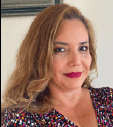 CUM LAUDE
CUM LAUDE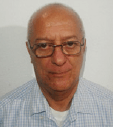 CUM LAUDE
CUM LAUDE
| Genoveva de Fátima Kamukete Bachelor of Business Management Business Management Angola |
Marilia dos Santos de Figueiredo Master of Business Administration Human Resources Angola |
Danilo Ransay Joaquim Mabiala Master of Business Management Business Management Angola |
Wanda Silvia Condarco Palto Doctor of Public Health Quality Management and Health Management Bolivia |
Oscar Angel Nogales Escalera Doctor of Philosophy Sanitary and Environmental Engineering Bolivia |
Nestor Ndavyirakora Post-Doctor of Science Evaluation and Measurement Burundi |
| Desmond Itiose Bachelor of Science Mechanical Engineering Canada |
Guillermo Andrés Cortés Roco Doctor of Physical Education Health and Physical Activity Chile |
Donaldo Barrios Gelez Doctor of Business Management Project Management Colombia |
Robinson Arturo Carrillo Ortiz Bachelor of Business Administration Public Administration Colombia |
Johny Jose Garcia Tirado Post-Doctorate of Business Administration Finance Colombia |
Nyengo Olonge Paulin Doctor of Legal Studies International Legal Studies Congo (DR C) |
| Manuel Antonio Molina Hidalgo Bachelor of Business Administration Business Management and Marketing Costa Rica |
María Del Carmen Hernández Valerio Doctor of History History Dominican Rep ublic |
Guinivere Yunissa Mirambeaux Vasquez Master of Architec ture Bioclimatic Architecture Dominican Rep ublic |
Jose Antonio Torreblanca Garcia Bachelor of International Business International Business Ecuador |
Iris Elizabeth Villalobos Argueta Bachelor of International Business International Business El Salvador |
Raquel Andong Eko Okomo Bachelor of Science Public Health Equatorial Guinea |
| Alexa Cecilia Valdez Mata Bachelor of Science Psychology Guam |
Julio Israel Santeliz Castañeda Doctor of Education Education Guatemala |
Simone Denise Bennett Master of Social Development Social Developm ent Guyana |
Armolyn Beckie Nmah Bachelor of Business Administration Human Resources Management Libe ria |
Frank Gleh Karnley Bachelor of Science Comp uter Science Libe ria |
Gilbert Roland Post-Doctor of Business Administration Leadership and Management Mauritius |
| Antonio de Jesús Garibaldi Corona Doctor of Business Administration Management Mexico |
Guillermo Vergara Martínez Doctor of Economics Economics Mexico |
Alma Anelina Vidales Cavazos Doctor of Philosophy Philosophy and Humanities Mexico |
Roberto João Macovo Bachelor of Science Mechanical Engineering Mozambique |
Paulo Fernando Nhaducue Doctor of Public Health Public Health Mozambique |
Melisa Eugenia Mayorga Sequeira Master of International Business International Business Nicaragua |
| Oyama Osam Ntun Master of Science Electrical Engineering Nigeria |
Inegbenekalo Ibhade Tuesday Doctor of Science Management Nigeria |
Bertha Milagros Palomino Buleje Bachelor of Education Education Peru |
Francisco Jesus Legua Diaz Bachelor of Science Industrial Engineering Peru |
Noel Nsanzineza Doctor of Philosophy Procurement and Project Management Rwanda |
Hlamphane Emmanuel Maepa Doctor of Philosophy Renewable Energy South Africa |
| Mosiuoa Mc Donald Malebo Master of Business Administration Business Management and Strategy South Africa |
Javier Fernández Sánchez Bachelor of Science Psychology Spain |
Mabel Olivia Awuor Bachelor of Business Administration Business Administration Tanzania |
Suwikran Sangkaew Doctor of Business Administration Business Administration Thailand |
Elvis Emmanuel O'Connor Doctor of Business Administration Business Administration Trinidad and Tobago |
Manuela Paone Di Simone Doctor of Psychology Clinical Psychology United Kingdom |
| Nkechinyere I. Olushola Newton-Denila Doctor of Legal Studies Information and Comm unications Technology United Kingdom |
Maria Estela Almada Bachelor of Public Health Health Research Uruguay |
Glenn Roberts Fry Doctor of Science Nutrition USA |
Iván Ortiz Doctor of Philosophy Marketing USA |
Jerome Colton Sills Jr - Wha Dee Doctor of Science Energy Eff iciency and Renewable Resources USA |
Philippe Jean Bachelor of Business Administration Business Administration USA |
| Lilian Cerna Cartes Master of Psychology Child Psychology USA |
Maryud Milena Cortes Restrepo Doctor of Science Psychology USA |
Ricardo Pinzon Bachelor of Science Telecomm unications Engineering USA |
Alfredo Jose Guzman Azurdia Bachelor of Business Administration Sales and Business USA |
Carlos Estevez Bachelor of Nutrition Diet and Nutrition USA |
Marisabel Amparan Uzcategui Bachelor of Psychology Child Psychology and Developm ent USA |
| Petronella Nambule Bachelor of Marketing Marketing Zambia |
|||||


The role of education in
daily life as well as society
is very important and leaves a
great on the overall progress of
society. Education is the only
area which is equally important
to each and every person
of the society.
The role and function of
education cannot be over emphasized.
Education enhances
and develops human abilities,
identity, integrity, power and
even potential. Until the early
twentieth century, education
was a privilege for only certain
classes of a society. Some
countries on the other hand
tried to enlighten the general
masses by making education
a right. In 1948 United Nations
Charter and Universal
Declaration of Human Rights
(UDHR) provided a human
right to education under
Article 26. To have a better
understanding of the rights
to education, laws from other
foreign countries implemented
the human rights principles
for a better understanding
to education. Therefore,
education should reflect the
purpose, function, quantity,
quality, access and contents
which the human right to
education attempts to protect,
prohibit, and provide.
Numerous international
instruments, treaties and
national laws relating to education
as a human right became diversified, complicated and interdisciplinary.
Domestic laws,
including state laws and local
ordinances were considered
as the right to education was
applied and implemented differently
among different states.
Because the right to education
has been recognized as
a human right and defined in
various human rights instruments
in various contexts,
this right was asserted against
states and their agencies.
UDHR Article 26(1) states that
‘‘everyone has the right to
education’’.
It is not meant only schooling
or getting degrees from
colleges and universities. It
may be formal, informal or
non-formal. In its every form,
it is equally important.
Education has a prominent
role in this modern era of the
global world. In today’s world,
it has become the most important
factor in the development
of society. It plays a key role in
the betterment of society. The
need of education is increasing
day by day due to which it has
become of utmost importance.
Education is the ultimate
pathway of success. It gives
a great deal of support and
encourages each and every
individual. The stunning fact
is that education is given the
highest place in today’s world.
Education is an institution
that typically is established
through a collective social
desire to have civil and supportive
societies. And if one
considers the social dynamic
found in many countries
around the world, there is
suggestion that education is a
right. With this in mind, many
existing international laws
and UN documents have been
created to promote and protect
this notion of education like
the UDHR, the International
Covenant on Economic, Social
and Cultural Rights (ICESCR),
and the International Convention
on the Rights of the
Child (ICRC). These documents
have helped to establish viable
legal mechanisms from
which nation-states can and
have implemented the structures
necessary to provide
for appropriate educational
opportunities.
Articles 28 and 29 in the
CRC for example made mention
on the establishment
of an educational environment
as a legitimate right of
all children to gain access to
education irrespective of their
sex, ethnicity, race or religion
all around the world (e.g.
UNESCO, 2009). To do this is to
recognize as the UN stipulates,
that a right to education ‘‘goes
beyond formal schooling to
embrace the broad range of
life experiences and learning
processes which enables every
child access to education within the society’’.(UN, 2001,
‘Appendix’, p.2). To uphold these
goals of the CRC is to make
a commitment to prepare
children to live a useful life
in the society in the spirit of
the ideals found in the UDHR
and provide children with
an empowering educational
environment.
Basically, education is a
process of continuous learning
which should be continued till
life ends. One should learn to
live a decent life, a life which
many promote knowledge and
awareness to society or individuals.
To acquire education
is a fundamental right of each
and every individual. Education
should be imparted to all
without any discrimination. It
is an essential commodity like
food, clothing and shelter.
Role of education
in daily life and society
Education plays a key role
in determining how you spend
your adult life-a higher level
of education means higher
earnings, better health and
longer life. By the same token,
the long term social and
financial costs of educational
failure are high.
Those without the skills
to participate socially and
economically generate higher
costs for health, income support,
child welfare, and social
security systems. Education is
a major aspect of the development
of any modern society.
It brings awareness to people
and keeps them away from superstitious
beliefs. It provides
best possible settlement. An
educated person can always
manage things better than
those of uneducated persons.
An educated person can lead
his life with many comforts.
Education teaches the
students to remain physically
and mentally strong. It is the
best investment for the people
Image:
because well educated people
have more opportunities to get
a job which gives them satisfaction.
An educated person
will be always respected in any
part of the world and his talent
will be awarded and rewarded.
Literacy rate depends on
education, the higher is the literacy
rate, and the better is the
society. All the advancement in
technology is due to education.
Education is the ultimate factor
that provides employment,
so it plays a vital role in the development
of the country and
also in raising the per capita
income of the country.
Education is the best
weapon to eradicate poverty.
It keeps the people away from
superstitious beliefs. It is the
only pathway to maintain
success in life. It increases the
ethical values of the person.
Education is not only
learning about books but also
learning about how to live life.
It rapidly increases your skill
and awareness. An educated
person will identify the difference
between good and
bad. Education has expanded
significantly in the past
half-century but hopes that
this would automatically bring
about a fairer society have
been only partly realized.
Women have made dramatic
advances, but overall social
mobility has not risen and
in some places due to which
inequalities of income and
wealth have increased.
In short, we can say that
education is of the utmost importance
and plays a vital role
in the advancement of any
society. Education has also
become a basic commodity
like food, clothing and shelter.
It develops a positive attitude
in the society. It is the ultimate
pathway of success. Education
is a major tool in the world
which is a key to success in
every work of life.
A comprehensive essay
on education for all.
Education is a process of
imparting knowledge from
teachers to the students. This
process may contain a different
variety of steps depending
on the stage and quality of
education. It is a key process
which plays a significant role
in maintaining the culture and
ethics of the society.
Education thus is an
extremely important element
and prior condition
of revamping the society. It
empowers the people to comprehend
the world out of the
box and help them to become
humanist and self-reliant.
Modern education is most
suitable, open and liberal. The
education brings freedom,
equality, and humanism to the
life of individual and society as
well. There are variety of subjects
taught in different fields
that is technology, linguistics,
economy, culture, agriculture,
health and many more.
Education is an important
medium to acquire skills and
knowledge. Education of a
child for example begins at
home. Thereafter, as the child
grows, he/she goes to schools,
colleges, and other educational
institutes.
Education brings positive
changes in the child’s life and
helps him or her to become a
useful member in the society.
It enhances knowledge, skill,
and intelligence of a person
and enables him/her to lead a
successful life.
Education is a social
instrument through which
a man can guide his destiny
and shape his future. It is
also important in social and
economic development of
a country. In this scenario,
adult’s education becomes inevitable
for his own life as well
as society. It is very difficult
for an uneducated person to
contribute towards betterment
and development. A child entering
his adult life gets education
from college or university.
Both colleges and universities
play important role in imparting
adult education.
Education at any stage of life
One should get education
throughout his life from
childhood to end of his life.
Even if an individual cannot
get proper education, he may
acquire the technical knowledge
which never requires age
restrictions.
No development is possible
without skillful and technical
education. Skillful and
technically trained human
resource plays important role
in the development of the
country. Economic growth
of a country mostly depends
on these skillful human
resources.
Advantages of education
• Knowledge gained through
education opens the door
of a lot of opportunities and
betterment.
• Education makes us humble,
polite and courteous.
• Education creates awareness
and expands our vision.
• We become more aware of
ourselves, about society,
about everything that surrounds
and affect our life.
• An educated person commands
respect in society.
• Education enables us to
earn our livelihood. Education
empowers an individual
to get a good job.
• The knowledge of science
and technology empowers
development in many fields.
Steps to improvement
in education
Keeping in view the importance
and advantages of
education, the following steps
can be taken for improvement
of education:
1. Foreign research material
should be translated into a
local language. It would
be helpful in gaining more
knowledge and advancement
in different fields of life.
2. Keep a check in distance
education.
3. Increase in incentives of
teachers.
4. Announcement of scholarships
and financial support
for students.
5. Different steps should be
taken to enhance the creativity
of students.
Conclusion
The countries with a high
level, effective and more focused
system of education are
the leaders of the world both
economically and socially.
Education is very helpful for
us because it helps us to grow
in every work of life.
The importance of education
cannot be explained in
words. Its importance can
be known after gaining the
knowledge. Education makes
a well-known personality and
respects. It creates the ability
to take right decisions.
The claim that education is
a human right is an important
one. It is important because
there is responsibility to enable
one to develop and acquire a
set of capabilities to lead their
own lives in a meaningful and
fulfilling way.
REFERENCES. Amnesty International. ‘‘Human Rights Education’’. Retrieved
August 9, 2013 (http://www.amnesty.org/en/human-rights-education). • Bajaj, Monisha. 2001.
‘‘Human Rights Education: Ideology, Location, and Approaches’’. Human Rights
Quarterly 33: 481-508. • Douglas Hodgson (2016). The International Human
Right to Education and Education Concerning Human Rights. • Eyler, Janet.
2001. ‘‘Creating Your Reflection Map’’. Pp. 35-433 in Developing and Implementing
Service-Learning Programs, edited by Mark Canada and Bruce W. Speck.
San Francisco: Jossey-Bass. • Farber, Katy. 2011. Change the World with Service
Learning: How to Organize, Lead, and Assess Service-Learning Projects. Lanham,
MD: Rowman & Littlefield Publishers, Inc. • Forum on Education Abroad.
2011. ‘‘Code of Ethics for Education Abroad’’. Retrieved December 27, 2012 (http://
www.forumea.org/documents/ForumEA-Code of Ethics 2011-2nd Edition.pdf). • Kate Halverson
(2015). Notes on the Realization of the Human Right to Education. • Kurt Willems
& Jones Vernimmen (2014). The Fundamental Human Right to Education
for Refugees: Some Legal Remarks. • O’Byrne, Kathy. 2001. ‘How Processors
can Promote Service-Learning in a Teaching Institution’’. Pp. 79-87 in Developing
and Implementing Service-Learning Programs, edited by Mark Canada and
Bruce W. Speck. San Francisco: Jossey-Bass. • Okin, Susan Moller. 1998. ‘‘Feminism,
Women;s Human Rights, and Cultural Differences.’’ Hypatia 13(2): 32-52.
• Orend, B. (2002). Human rights: Concept and context. Peterborough, Canada:
Broadview Press. • Orend, B. (2006). Justifying Socio-economic Rights. In R.F.
Hassmann, & C.E. Welch, Jr. (Eds), Economic rights in Canada and the United
States (pp.25-40). Philadelphia: University of Pennsylvania Press. • UNESCO,
‘‘Human Rights Education.’’ Retrieved September 15, 2013 (http://www.unesco,org/
new/en/education/themes/leading-the-international-agenda/human-rights-education). • UNESCO.
(2009). Promoting gender equality in education. Bangkok, ‘Thailand: UNESCO
Office. • UN General Assembly. (1948). Universal Declaration of Human Rights.
Retrieved from http//www.un.org/en/documents/udhr/index.shtml • UN General Assembly.
(1966). International Covenant on Economic, social and cultural rights. Retrieved
from http://www.ochr.org/english/law/cescr.htm

Live on is such a short
expression. How much
meaning is inside it! We are in
a period of History in which
what we hear is the opposite of
this expression. The great thing
about our historical moment is
that we have to fight to live.
What live on is? There are
those who think that live is
being in the world and having
all possible goods. Live on, for
others, is just eating every day.
Live on is being biologically.
The concept about live on
has many meanings
a) Live on is developing our
skills. b) Live on is looking for
growth opportunities.
c) Live on is feeling happy for
the goals we achieve.
d) Live on is seeking new
goals. e) Live on is solving what apparently
became a problem.
More than one will say that it’s
too much to do to say that I
live, that I’m in this world.
There are those who spend
their lives and didn’t know
what it was to live.
It is very sad to get to the
end and perhaps in those
final years to realize all that
they let go of.
For many, living is being
happy, they can be asked what
it’s to be happy and they don’t
have an answer.
Given the historical moment
that we are living, what is
clear to many is what happens
when you don’t have life.
It wouldn’t be better for us
to learn about the virus that
plagues humanity, what life is?
If living is all that we have
just listed and it translates into
being happy, it seems that we
have to be very clear about
what it’s to be happy.
The first expression of living
as being in the world is not living; it doesn’t make us happy
because to be in the world
you have to know where politics,
the economy, the social
movement, morality are going,
so that the movements that
occur don’t generate surprises.
Therefore being in the world is
not so easy.
Having all the goods is not
living either, because together
with having you have to live
biologically. In that living biologically,
you have to take care
of being healthy.
You have to take care of eating
what the body needs and
knowing how to do it.
Therefore having everything
doesn’t mean living without
thinking about anything.
Eating every day also has its
strong point; you have to look
for the right foods and also
in a society of commerce, the
production of goods, to obtain
them: you have to work to buy
them, so, eating well doesn’t
mean getting under a palm
tree and waiting for the food
to arrive.
To live is to be well biologically
because we eat the
right things and in the right
amounts and for that we have
to investigate. Things get complicated
when living involves
developing our skills. Like it or
not, for everything, we have to
seek the knowledge of.
If we seek the knowledge of
our abilities and we develop
them, our whole being and
environment begin to grow in
the appropriate sense because
we walk in the sense that
makes us feel satisfied, happy
and therefore we are living.
When we seek the development
of our skills, it comes
with it to see our opportunities
clearly.
My abilities are mine so, my
opportunities are also mine
and then, yes, I’ll find the
space to be happy; I’ll find the
space to live.
If I dedicate myself to
copying what I see in others,
I won’t be able to do anything
because I don’t have the skills
to do so. If I look for my skills
I’ll be very clear about the
search for my opportunities
and by doing a job that leaves
me satisfied, I’m living.
Living is being, it’s being to
be well: biologically, socially
and mentally.
When we achieve the stages
that we have mentioned, we
can say that we live and with
that having we achieve in
an easier way to solve what
comes our way with some
difficulty.
Living is more than being
there for what we are describing.
All the aspects that we
have mentioned constitute
what we call freedom.
As human beings, it happens
to us that we don’t know
what to live is and when we
learn it, the time to carry out
the activities that we had to
carry out has passed.
We are facing a global event
that apparently surprised all
human beings.
We can’t let the facts defeat
us as human beings and as a
society. Each of us, instead of
complaining about governments
or that other circumstance
generated what we live;
we have to find a solution to
what life is for each one.
What do I have to do in the
environment that I live to
move forward? I have to see if
I have to set long-term goals.
What can I do with what I
now obtain? What we should
never do is fall into the circumstances.
We can continue
to be in control of our lives.
The anxiety of many people
is the uncertainty of what
happens. That uncertainty
is what can’t beat us. That
uncertainty is what generates
sadness and anxiety. I can’t do
this or that but I can do this
and that.
Another thing that we can’t
do is, wait for each day to see
what will happen because that way we lose control of our life.
Nor can we continue to
think that now I can’t do this
or what I did, we must continue
to build a way as human
beings. You have to look for
the goals to achieve and not
fall into the anguish of living
in the past. We must continue
to build our lives.
Go ahead, you can look
for the positives
in your life
Go ahead, you can build
with what you have. BIBLIOGRAPHY. Comte-Sponville, A. (2018). La felicidad, desesperadamente.
Barcelona: Paidós.
 If someone had said back in 2019
that most university teaching could
go online within a few months, no
one would have believed it. They
would have been told that it would
take years for academics and universities
to prepare. The pandemic of
2020 showed that it was possible to
move teaching online fast. A pragmatic
decision made necessary by a
government lockdown changed university
teaching almost overnight.
Some excellent university technicians
facilitated huge technical changes
to teaching. This was very impressive,
but it was merely a technical shift that
had no basis in professional or curricula
development. The argument for
online learning had not been won. A
few universities went ‘online only’, but
others went for a blended approach. ...
Of all the arguments that the pandemic
forced academics and others
to face was the argument for education.
That argument was not won. The
return to education was defended in
terms of protecting the well-being
and mental health of students. The
argument that what students needed
above all else was an education was
bypassed. Students were defended not
as human beings who need to have
that conversation between generations,
but as diminished vulnerable
victims of the pandemic who needed
schools as a therapeutic place. ...
Read full text:
If someone had said back in 2019
that most university teaching could
go online within a few months, no
one would have believed it. They
would have been told that it would
take years for academics and universities
to prepare. The pandemic of
2020 showed that it was possible to
move teaching online fast. A pragmatic
decision made necessary by a
government lockdown changed university
teaching almost overnight.
Some excellent university technicians
facilitated huge technical changes
to teaching. This was very impressive,
but it was merely a technical shift that
had no basis in professional or curricula
development. The argument for
online learning had not been won. A
few universities went ‘online only’, but
others went for a blended approach. ...
Of all the arguments that the pandemic
forced academics and others
to face was the argument for education.
That argument was not won. The
return to education was defended in
terms of protecting the well-being
and mental health of students. The
argument that what students needed
above all else was an education was
bypassed. Students were defended not
as human beings who need to have
that conversation between generations,
but as diminished vulnerable
victims of the pandemic who needed
schools as a therapeutic place. ...
Read full text:
 At first glance, the Cornish mallow
(Lavatera cretica) is little more
than an unprepossessing weed. It has
pinkish flowers and broad, flat leaves
that track sunlight throughout the day.
However, it’s what the mallow does at
night that has propelled this humble
plant into the scientific spotlight.
Hours before the dawn, it springs into
action, turning its leaves to face the anticipated
direction of the sunrise. The
mallow seems to remember where and
when the Sun has come up on previous
days, and acts to make sure it can
gather as much light energy as possible
each morning. When scientists try to
confuse mallows in their laboratories
by swapping the location of the light
source, the plants simply learn the
new orientation.
What does it even mean to say that
a mallow can learn and remember
the location of the sunrise? The idea
that plants can behave intelligently,
let alone learn or form memories, was
a fringe notion until quite recently.
Memories are thought to be so fundamentally
cognitive that some theorists
argue that they’re a necessary and sufficient
marker of whether an organism
can do the most basic kinds of thinking.
Surely memory requires a brain,
and plants lack even the rudimentary
nervous systems of bugs and worms. ...
Read full text:
At first glance, the Cornish mallow
(Lavatera cretica) is little more
than an unprepossessing weed. It has
pinkish flowers and broad, flat leaves
that track sunlight throughout the day.
However, it’s what the mallow does at
night that has propelled this humble
plant into the scientific spotlight.
Hours before the dawn, it springs into
action, turning its leaves to face the anticipated
direction of the sunrise. The
mallow seems to remember where and
when the Sun has come up on previous
days, and acts to make sure it can
gather as much light energy as possible
each morning. When scientists try to
confuse mallows in their laboratories
by swapping the location of the light
source, the plants simply learn the
new orientation.
What does it even mean to say that
a mallow can learn and remember
the location of the sunrise? The idea
that plants can behave intelligently,
let alone learn or form memories, was
a fringe notion until quite recently.
Memories are thought to be so fundamentally
cognitive that some theorists
argue that they’re a necessary and sufficient
marker of whether an organism
can do the most basic kinds of thinking.
Surely memory requires a brain,
and plants lack even the rudimentary
nervous systems of bugs and worms. ...
Read full text:
 Black holes have always fascinated
Janna Levin. In this episode, the
astrophysicist ... describes the fierce
scientific beauty and poetry she finds
in them. She also talks with host about
the importance of extreme creativity in
scientific discovery, and why she took a
major risk early in her career. ...
Strogatz: Janna Levin is a cosmologist.
That’s somebody who studies the
cosmos as a whole, the whole universe.
She’s especially interested in how the
universe evolved, how it went from
the Big Bang to what it is today. I met
Janna around 2003. It was right after
she published How the Universe Got Its
Spots, and I was completely enthralled
by that book. I t’s so poetic, so intimate,
and scientifically accurate.
There was so much to learn from it,
and I just felt like I was dying to meet
her, and I arranged for her to come to
Cornell for a session ... and we’ve been
friends ever since. Janna is a professor
of physics and astronomy, but she’s
also a director of sciences at a cultural
center in Brooklyn called Pioneer
Works. Her programming there involves
a lot of unsolved mysteries.
Levin: So “Scientific Controversies”
is two scientists on stage addressing
an unsolved problem. So the controversy
isn’t between the scientists,
necessarily, so much as it —as it is
between the scientists and nature. ...
Black holes have always fascinated
Janna Levin. In this episode, the
astrophysicist ... describes the fierce
scientific beauty and poetry she finds
in them. She also talks with host about
the importance of extreme creativity in
scientific discovery, and why she took a
major risk early in her career. ...
Strogatz: Janna Levin is a cosmologist.
That’s somebody who studies the
cosmos as a whole, the whole universe.
She’s especially interested in how the
universe evolved, how it went from
the Big Bang to what it is today. I met
Janna around 2003. It was right after
she published How the Universe Got Its
Spots, and I was completely enthralled
by that book. I t’s so poetic, so intimate,
and scientifically accurate.
There was so much to learn from it,
and I just felt like I was dying to meet
her, and I arranged for her to come to
Cornell for a session ... and we’ve been
friends ever since. Janna is a professor
of physics and astronomy, but she’s
also a director of sciences at a cultural
center in Brooklyn called Pioneer
Works. Her programming there involves
a lot of unsolved mysteries.
Levin: So “Scientific Controversies”
is two scientists on stage addressing
an unsolved problem. So the controversy
isn’t between the scientists,
necessarily, so much as it —as it is
between the scientists and nature. ...
 As demand for artificial intelligence
grows, so does hunger for the
computer power needed to keep AI
running. Lightmatter, a startup born
at MIT, is betting that AI’s voracious
hunger will spawn demand for a fundamentally
different kind of computer
chip —one that uses light to perform
key calculations. “Either we invent new
kinds of computers to continue,” says
CEO Nick Harris, “or AI slows down.”
Conventional computer chips work
by using transistors to control the flow
of electrons through a semiconductor.
By reducing information to a series of
1s and 0s, these chips can perform a
wide array of logical operations, and
power complex software. Lightmatter’s
chip, by contrast, is designed to
perform only a specific kind of mathematical
calculation that is critical to
running powerful AI programs.
Harris showed WIRED the new
chip at the company’s headquarters
in Boston recently. It looked like a
regular computer chip with several
fiber optic wires snaking out of it. But
it performed calculations by splitting
and mixing beams of light within tiny
channels, measuring just nanometers.
An underlying silicon chip orchestrates
the functioning of the photonic
part, and also provides temporary
memory storage. Lightmatter plans to
start shipping its first light-based AI
chip, called Envise, later this year. ...
Read full text
As demand for artificial intelligence
grows, so does hunger for the
computer power needed to keep AI
running. Lightmatter, a startup born
at MIT, is betting that AI’s voracious
hunger will spawn demand for a fundamentally
different kind of computer
chip —one that uses light to perform
key calculations. “Either we invent new
kinds of computers to continue,” says
CEO Nick Harris, “or AI slows down.”
Conventional computer chips work
by using transistors to control the flow
of electrons through a semiconductor.
By reducing information to a series of
1s and 0s, these chips can perform a
wide array of logical operations, and
power complex software. Lightmatter’s
chip, by contrast, is designed to
perform only a specific kind of mathematical
calculation that is critical to
running powerful AI programs.
Harris showed WIRED the new
chip at the company’s headquarters
in Boston recently. It looked like a
regular computer chip with several
fiber optic wires snaking out of it. But
it performed calculations by splitting
and mixing beams of light within tiny
channels, measuring just nanometers.
An underlying silicon chip orchestrates
the functioning of the photonic
part, and also provides temporary
memory storage. Lightmatter plans to
start shipping its first light-based AI
chip, called Envise, later this year. ...
Read full text
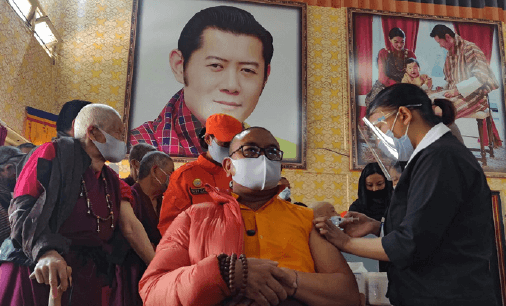 The Lunana area of Bhutan is remote
even by the standards of an
isolated Himalayan kingdom: It covers
an area about twice the size of New
York City, borders far western China,
includes glacial lakes and some of the
world’s highest peaks, and is inaccessible
by car. Still, most people living
there have already received a coronavirus
vaccine.
Vials of the Oxford-AstraZeneca
vaccine arrived last month by helicopter
and were distributed by health
workers, who walked from village to
village through snow and ice. Vaccinations
proceeded in the area’s 13 settlements
even after yaks damaged some
of the field tents that volunteers had
set up for patients.
“I got vaccinated first to prove to my
fellow villagers that the vaccine does
not cause death and is safe to take,”
Pema, a village leader in Lunana who
is in his 50s and goes by one name,
said by telephone. “After that, everyone
here took the jab.”
Lunana’s campaign is part of a quiet
vaccine success story in one of Asia’s
poorest countries. As of Saturday,
Bhutan, a Buddhist kingdom that has
emphasized its citizens’ well-being over
national prosperity, had administered a
first vaccine dose to more than 478,000
people, over 60% of its population. The
Health Ministry said this month that
more than 93% of eligible adults had ...
Read full text:
The Lunana area of Bhutan is remote
even by the standards of an
isolated Himalayan kingdom: It covers
an area about twice the size of New
York City, borders far western China,
includes glacial lakes and some of the
world’s highest peaks, and is inaccessible
by car. Still, most people living
there have already received a coronavirus
vaccine.
Vials of the Oxford-AstraZeneca
vaccine arrived last month by helicopter
and were distributed by health
workers, who walked from village to
village through snow and ice. Vaccinations
proceeded in the area’s 13 settlements
even after yaks damaged some
of the field tents that volunteers had
set up for patients.
“I got vaccinated first to prove to my
fellow villagers that the vaccine does
not cause death and is safe to take,”
Pema, a village leader in Lunana who
is in his 50s and goes by one name,
said by telephone. “After that, everyone
here took the jab.”
Lunana’s campaign is part of a quiet
vaccine success story in one of Asia’s
poorest countries. As of Saturday,
Bhutan, a Buddhist kingdom that has
emphasized its citizens’ well-being over
national prosperity, had administered a
first vaccine dose to more than 478,000
people, over 60% of its population. The
Health Ministry said this month that
more than 93% of eligible adults had ...
Read full text:
 A new vaccine for Covid-19 that is
entering clinical trials in Brazil,
Mexico, Thailand and Vietnam could
change how the world fights the pandemic.
The vaccine, called NDV-HXPS,
is the first in clinical trials to use a
new molecular design that is widely
expected to create more potent antibodies
than the current generation of
vaccines. And the new vaccine could
be far easier to make.
Existing vaccines from companies
like Pfizer and Johnson & Johnson
must be produced in specialized factories
using hard-to-acquire ingredients.
In contrast, the new vaccine can
be mass-produced in chicken eggs
—the same eggs that produce billions
of influenza vaccines every year in
factories around the world.
If NDV-HXP-S proves safe and effective,
flu vaccine manufacturers could
potentially produce well over a billion
doses of it a year. Low- and middleincome
countries currently struggling
to obtain vaccines from wealthier countries
may be able to make NDV-HXP-S
for themselves or acquire it at low cost
from neighbors. “That’s staggering —it
would be a game-changer,” said Andrea
Taylor, assistant director of the Duke
Global Health Innovation Center.
First, however, clinical trials must establish
that NDV-HXP-S actually works
in people. The first phase of clinical
trials will conclude in July ...
A new vaccine for Covid-19 that is
entering clinical trials in Brazil,
Mexico, Thailand and Vietnam could
change how the world fights the pandemic.
The vaccine, called NDV-HXPS,
is the first in clinical trials to use a
new molecular design that is widely
expected to create more potent antibodies
than the current generation of
vaccines. And the new vaccine could
be far easier to make.
Existing vaccines from companies
like Pfizer and Johnson & Johnson
must be produced in specialized factories
using hard-to-acquire ingredients.
In contrast, the new vaccine can
be mass-produced in chicken eggs
—the same eggs that produce billions
of influenza vaccines every year in
factories around the world.
If NDV-HXP-S proves safe and effective,
flu vaccine manufacturers could
potentially produce well over a billion
doses of it a year. Low- and middleincome
countries currently struggling
to obtain vaccines from wealthier countries
may be able to make NDV-HXP-S
for themselves or acquire it at low cost
from neighbors. “That’s staggering —it
would be a game-changer,” said Andrea
Taylor, assistant director of the Duke
Global Health Innovation Center.
First, however, clinical trials must establish
that NDV-HXP-S actually works
in people. The first phase of clinical
trials will conclude in July ...
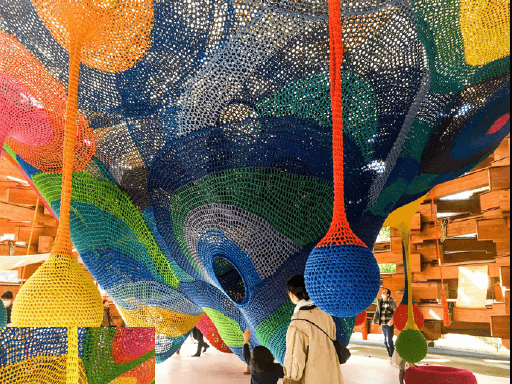 The artist created this structure using
650kg of nylon. She knitted the
entire web by hand over the timeframe
of a year. ... She was influenced by the
Spanish architect Antonio Gaudi who
was inspired by nature’s soft curves and
organic shapes. The sculpture was created
by a team of structural and project
designers who assisted Toshiko in the
artwork’s production. ...
“All children can play together. They
do not have to be athletic, but can still
use their whole bodies for fun –laughing,
giggling and screaming. They have
a great time together. Often older children
help smaller children. They try to
dazzle each other with their ingenious
and acrobatic feats” said Toshiko in an interview. “Children need to cope with risk. They enjoy
a challenge but by nature are very careful. Presented
with a play structure which does not challenge them,
they quickly grow bored… and then break them. If you
give them a challenging play environment, designed
so children can assess risk, they will not get hurt. Our
structures encourage children to challenge themselves
but with many routes and options. There is no program
of play. There are always alternatives. Each child plays
at the level he or she is comfortable with.” ...
Interplay Design and Manufacturing is the design
company start by Toshiko. Visit: netplayworks.com
Read full text:
The artist created this structure using
650kg of nylon. She knitted the
entire web by hand over the timeframe
of a year. ... She was influenced by the
Spanish architect Antonio Gaudi who
was inspired by nature’s soft curves and
organic shapes. The sculpture was created
by a team of structural and project
designers who assisted Toshiko in the
artwork’s production. ...
“All children can play together. They
do not have to be athletic, but can still
use their whole bodies for fun –laughing,
giggling and screaming. They have
a great time together. Often older children
help smaller children. They try to
dazzle each other with their ingenious
and acrobatic feats” said Toshiko in an interview. “Children need to cope with risk. They enjoy
a challenge but by nature are very careful. Presented
with a play structure which does not challenge them,
they quickly grow bored… and then break them. If you
give them a challenging play environment, designed
so children can assess risk, they will not get hurt. Our
structures encourage children to challenge themselves
but with many routes and options. There is no program
of play. There are always alternatives. Each child plays
at the level he or she is comfortable with.” ...
Interplay Design and Manufacturing is the design
company start by Toshiko. Visit: netplayworks.com
Read full text:
 Architecture studio Anna and
Eugeni Bach has designed Seven
Lives, an apartment block in Barcelona
that references its surroundings
but has been given a playful modern
touch with vibrant balconies and an
adaptable layout. The building was
dby the Barcelona-based studio to
conserve and capture the essence
of the neighbourhood, while also
adding a contemporary look.
Read full text:
Architecture studio Anna and
Eugeni Bach has designed Seven
Lives, an apartment block in Barcelona
that references its surroundings
but has been given a playful modern
touch with vibrant balconies and an
adaptable layout. The building was
dby the Barcelona-based studio to
conserve and capture the essence
of the neighbourhood, while also
adding a contemporary look.
Read full text:
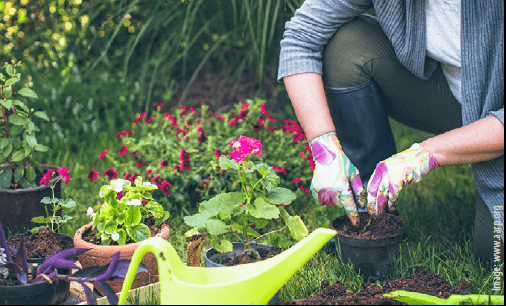 [The Blue Zones are five places in the
world where people regularly live long,
healthy lives into their 100s.]
1 Walking. It is good for the overall
body, including the brain. Daily
walking is correlated with preserving
the hippocampus, which is the part of
the brain where memory is stored.
2 Bicycling. According to Robert
Agnello, DO, people in the Blue
Zone of Sardinia prefer bicycles as their
primary mode of transportation. This
undoubtedly has long-term positive effects
on their cardiovascular health.
3 Dancing. This is another way
people in Blue Zones keep moving
with people they love in ways that
bring them joy. Dancing isn’t just a
way to get your heart rate up; it’s also
good for cognitive function because it
takes coordination.
4 Tai chi. Similar to dance, tai chi
takes coordination, which is good
for cognitive health. Another reason
why tai chi is beneficial is because it
helps with stress relief.
5 Gardening. Yard work is basically
strength training and it’s one of the
best exercises for longevity. “In all Blue
Zones, people continue to garden even
into their 90s and 100s,” says Buettner.
Gardening has the power to boost your
mood whether you do it on a city balcony
or in a suburban backyard. ...
[The Blue Zones are five places in the
world where people regularly live long,
healthy lives into their 100s.]
1 Walking. It is good for the overall
body, including the brain. Daily
walking is correlated with preserving
the hippocampus, which is the part of
the brain where memory is stored.
2 Bicycling. According to Robert
Agnello, DO, people in the Blue
Zone of Sardinia prefer bicycles as their
primary mode of transportation. This
undoubtedly has long-term positive effects
on their cardiovascular health.
3 Dancing. This is another way
people in Blue Zones keep moving
with people they love in ways that
bring them joy. Dancing isn’t just a
way to get your heart rate up; it’s also
good for cognitive function because it
takes coordination.
4 Tai chi. Similar to dance, tai chi
takes coordination, which is good
for cognitive health. Another reason
why tai chi is beneficial is because it
helps with stress relief.
5 Gardening. Yard work is basically
strength training and it’s one of the
best exercises for longevity. “In all Blue
Zones, people continue to garden even
into their 90s and 100s,” says Buettner.
Gardening has the power to boost your
mood whether you do it on a city balcony
or in a suburban backyard. ...
 Most of us have something about
us that we’re not 100% in love
with —an impulsive streak, perhaps, or
a short temper. What if those personality
traits could be modified with daily
use of a smartphone app? That was the
focus of a new study from an international
research team led by the University
of Zurich, published in Proceedings
of the National Academy of Sciences. ...
Around 1,500 participants were
provided with a specially developed
smartphone app called PEACH (PErsonality
coACH) for three months.
After this period, the researchers
assessed whether —and if so, how—
their personalities had changed. Five
major personality traits were examined:
openness, conscientiousness, sociability (extraversion), considerateness
(agreeableness), and emotional
vulnerability (neuroticism). The app
included elements of knowledge transfer,
behavioral and resource activation,
self-reflection, and feedback on
progress. A virtual companion (chatbot)
communicated with the participants
daily and provided support to help
them make the changes they desired. ...
The researchers found that participants
in the waitlist control group did
not change their personality traits
during the one-month waiting period,
but participants who received the
intervention reported changes in the
desired direction. ...
Most of us have something about
us that we’re not 100% in love
with —an impulsive streak, perhaps, or
a short temper. What if those personality
traits could be modified with daily
use of a smartphone app? That was the
focus of a new study from an international
research team led by the University
of Zurich, published in Proceedings
of the National Academy of Sciences. ...
Around 1,500 participants were
provided with a specially developed
smartphone app called PEACH (PErsonality
coACH) for three months.
After this period, the researchers
assessed whether —and if so, how—
their personalities had changed. Five
major personality traits were examined:
openness, conscientiousness, sociability (extraversion), considerateness
(agreeableness), and emotional
vulnerability (neuroticism). The app
included elements of knowledge transfer,
behavioral and resource activation,
self-reflection, and feedback on
progress. A virtual companion (chatbot)
communicated with the participants
daily and provided support to help
them make the changes they desired. ...
The researchers found that participants
in the waitlist control group did
not change their personality traits
during the one-month waiting period,
but participants who received the
intervention reported changes in the
desired direction. ...
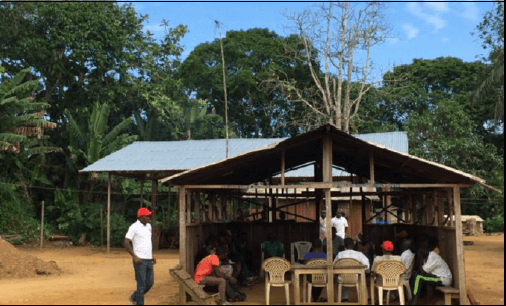 A forestry company in Gabon has
built new roads to log a forest in
the northeastern province of Ogooué-
Ivindo. Villagers had applied to the
government last August to reclassify
this valuable forest as a protected area,
and say they are alarmed by the company’s
rapid advance while they wait
for a formal response.
Rural communities in this area rely
on local forests for fishing, hunting
and gathering. These livelihoods and
the wildlife populations they depend
on are increasingly threatened by mining,
intensive logging, and poaching
for the illegal ivory trade and unregulated
commercial hunting for bushmeat.
A massive increase in logging by
foreign companies over the last decade
—around 40 companies hold logging
concessions covering most of the
area— and associated road building
has opened access to formerly intact
forests and razed local ecosystems.
In response, three Ogooué-Ivindo
villages have taken steps to protect the
environment and their way of life. The
villages of Latta, Ebessi, and Massaha
have established management plans
to regulate hunting practices and
delineate informal protected reserves
in their forests.
With logging rapidly expanding, the
village of Massaha, 56 kilometers (35
miles) from the provincial capital of
Makokou, has gone one step further.
A portion of the forest relied on by
villagers is also ...
Read full text:
A forestry company in Gabon has
built new roads to log a forest in
the northeastern province of Ogooué-
Ivindo. Villagers had applied to the
government last August to reclassify
this valuable forest as a protected area,
and say they are alarmed by the company’s
rapid advance while they wait
for a formal response.
Rural communities in this area rely
on local forests for fishing, hunting
and gathering. These livelihoods and
the wildlife populations they depend
on are increasingly threatened by mining,
intensive logging, and poaching
for the illegal ivory trade and unregulated
commercial hunting for bushmeat.
A massive increase in logging by
foreign companies over the last decade
—around 40 companies hold logging
concessions covering most of the
area— and associated road building
has opened access to formerly intact
forests and razed local ecosystems.
In response, three Ogooué-Ivindo
villages have taken steps to protect the
environment and their way of life. The
villages of Latta, Ebessi, and Massaha
have established management plans
to regulate hunting practices and
delineate informal protected reserves
in their forests.
With logging rapidly expanding, the
village of Massaha, 56 kilometers (35
miles) from the provincial capital of
Makokou, has gone one step further.
A portion of the forest relied on by
villagers is also ...
Read full text:
 The California Independent System
Operator, which manages our electric
grid, rejected an oversupply of wind
and solar energy last year that was equal
to the annual volume of wind and solar
energy from MCE (Marin Clean Energy).
The oversupply pace is worse this year
and points to growing issues California
cannot outrun.
Wind and solar constitute the majority
of our renewable energy supply.
Because these sources are intermittent ...
much of it cannot be used. The oversupply
situation is getting worse as MCE and
other energy companies attempt to pour
more wind and solar onto an electric
grid that is incapable of absorbing it.
The solution ... is battery storage. It
is not. Lithium-ion batteries can only
discharge energy for about five hours,
assuming there are enough in service.
The largest in the U.S. is a monstersized
409-megawatt battery in Florida
that, in a blackout, could run that state
for about two minutes. Should we
manufacture more batteries? According
to the Manhattan Institute, it would
take Tesla’s giga-factory outside Reno,
the largest lithium-ion battery production
site in the country, 500 years to
produce enough batteries to power the
U.S. for one day. ...
Read full text
The California Independent System
Operator, which manages our electric
grid, rejected an oversupply of wind
and solar energy last year that was equal
to the annual volume of wind and solar
energy from MCE (Marin Clean Energy).
The oversupply pace is worse this year
and points to growing issues California
cannot outrun.
Wind and solar constitute the majority
of our renewable energy supply.
Because these sources are intermittent ...
much of it cannot be used. The oversupply
situation is getting worse as MCE and
other energy companies attempt to pour
more wind and solar onto an electric
grid that is incapable of absorbing it.
The solution ... is battery storage. It
is not. Lithium-ion batteries can only
discharge energy for about five hours,
assuming there are enough in service.
The largest in the U.S. is a monstersized
409-megawatt battery in Florida
that, in a blackout, could run that state
for about two minutes. Should we
manufacture more batteries? According
to the Manhattan Institute, it would
take Tesla’s giga-factory outside Reno,
the largest lithium-ion battery production
site in the country, 500 years to
produce enough batteries to power the
U.S. for one day. ...
Read full text
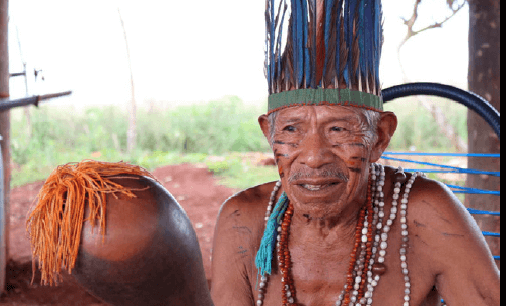 A small community of Brazilian
Indians has won a land rights
case at Brazil’s Supreme Court that
could have major repercussions for
indigenous people across the country.
The Court has ruled that a 2014 judicial
decision canceling the return of
some of their ancestral territory to the
Guarani community of Guyra Roka
must be revisited because the Guarani
themselves were not involved in the
process. Now, they must be given a fair
hearing before the Court votes again
on the return of their territory.
The ruling will potentially affect other
communities whose lands have been
stolen, but who hope to reclaim them.
However, the chances of the Guarani
recovering their land any time soon
are remote. Most of the area has been
taken over by a powerful politician and
rancher, José Teixeira, who has been
implicated in a series of attacks on the
Guarani. One of the leaders of Guyra
Roka, Ambrosio Vilhalva, who acted
in the feature film Birdwatchers, was
stabbed to death in 2013. Vilhalva and
others led a “re-occupation” in 2000
to recover a small parcel of their land
from the rancher.
Tito Vilhalva, a religious leader of
the Guyra Roka community, said: “I’m
99 years old now. [When I was young]
Guyra Roka was forest –there was no
road, no fences. It was just forest and
Indians, monkeys and tapirs. There
were no Brazilians then.”
The 2014 cancelation of the Guyra
Roka’s territory was based ...
Read full text:
A small community of Brazilian
Indians has won a land rights
case at Brazil’s Supreme Court that
could have major repercussions for
indigenous people across the country.
The Court has ruled that a 2014 judicial
decision canceling the return of
some of their ancestral territory to the
Guarani community of Guyra Roka
must be revisited because the Guarani
themselves were not involved in the
process. Now, they must be given a fair
hearing before the Court votes again
on the return of their territory.
The ruling will potentially affect other
communities whose lands have been
stolen, but who hope to reclaim them.
However, the chances of the Guarani
recovering their land any time soon
are remote. Most of the area has been
taken over by a powerful politician and
rancher, José Teixeira, who has been
implicated in a series of attacks on the
Guarani. One of the leaders of Guyra
Roka, Ambrosio Vilhalva, who acted
in the feature film Birdwatchers, was
stabbed to death in 2013. Vilhalva and
others led a “re-occupation” in 2000
to recover a small parcel of their land
from the rancher.
Tito Vilhalva, a religious leader of
the Guyra Roka community, said: “I’m
99 years old now. [When I was young]
Guyra Roka was forest –there was no
road, no fences. It was just forest and
Indians, monkeys and tapirs. There
were no Brazilians then.”
The 2014 cancelation of the Guyra
Roka’s territory was based ...
Read full text:
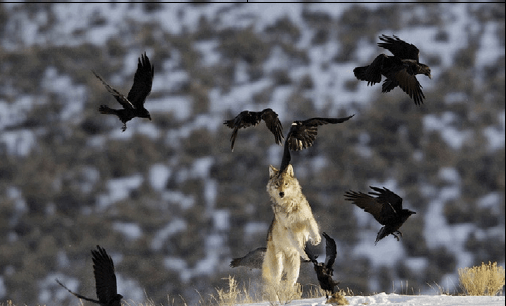 The following information comes
from “The Wolf Almanac,” a
celebration of wolves and their world,
by Robert Busch. He explains the relationship
and proves once again one of
the many contributions wolves give to
the environment.
“One of the most fascinating relationships
between animals is the one
that seems to exist between wolves and
ravens. The raven ... will often follow
wolf packs in hopes of morsels of food.
And wolves have learned to watch for
circling ravens as a sign of of possible
food below. But there seems to be more
than just a symbiosis based on food between
the two species; many observations
have been made that can only be described as a friendship between the
big predator and the wily bird.”
In Arctic Wild, Lois Crisler states
her belief that “ravens and wolves
just like each other’s company.” She
described one play session between
the two species, with the raven diving
at the wolves and jumping around just
out of reach. “He played this raven tag
for ten minutes at a time. If the wolves
ever tired of it, he sat squawking till
they came over to him again.”
L. David Mech, in The Wolves of
Isle Royale, described the “peculiar
relationship” between a flock of ravens
and a large wolf pack, and ...
Read full text
and find mpre photos:
The following information comes
from “The Wolf Almanac,” a
celebration of wolves and their world,
by Robert Busch. He explains the relationship
and proves once again one of
the many contributions wolves give to
the environment.
“One of the most fascinating relationships
between animals is the one
that seems to exist between wolves and
ravens. The raven ... will often follow
wolf packs in hopes of morsels of food.
And wolves have learned to watch for
circling ravens as a sign of of possible
food below. But there seems to be more
than just a symbiosis based on food between
the two species; many observations
have been made that can only be described as a friendship between the
big predator and the wily bird.”
In Arctic Wild, Lois Crisler states
her belief that “ravens and wolves
just like each other’s company.” She
described one play session between
the two species, with the raven diving
at the wolves and jumping around just
out of reach. “He played this raven tag
for ten minutes at a time. If the wolves
ever tired of it, he sat squawking till
they came over to him again.”
L. David Mech, in The Wolves of
Isle Royale, described the “peculiar
relationship” between a flock of ravens
and a large wolf pack, and ...
Read full text
and find mpre photos:
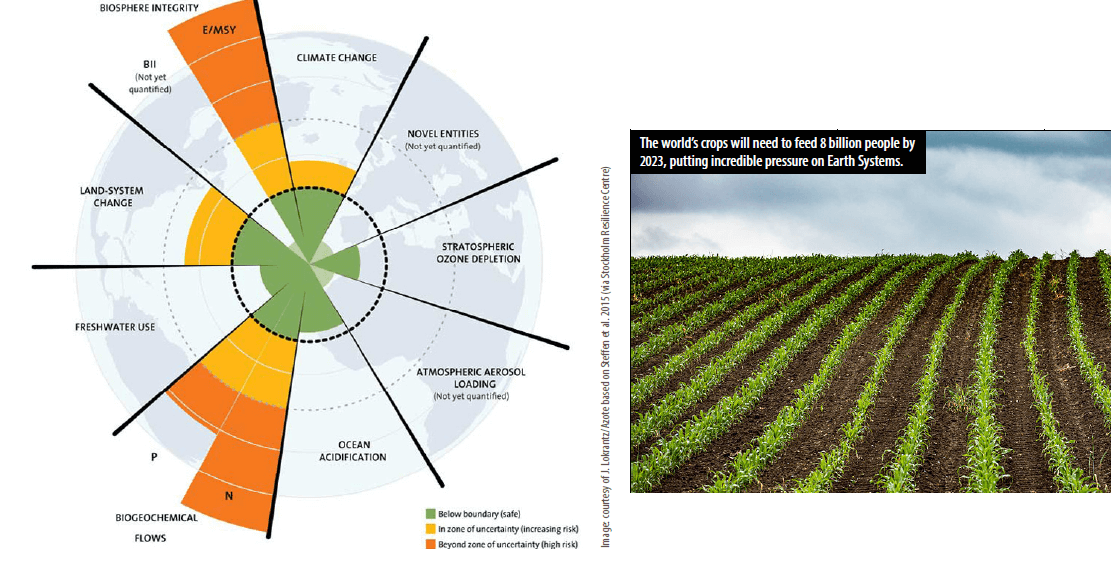
 Perfect for collecting
fresh vegetables from
your backyard garden
or farmer’s market.
When you’re done, you
can wash all your picks
at once with the hose
outside or bring them to
the sink in the kitchen.
www.thegrommet.com
Perfect for collecting
fresh vegetables from
your backyard garden
or farmer’s market.
When you’re done, you
can wash all your picks
at once with the hose
outside or bring them to
the sink in the kitchen.
www.thegrommet.com
 Ideal for serving
and storing fruit: the double-walled mesh
design allows for air circulation, keeping
your fruit fresh. Powder-coated steel. Hand
wash only. store.moma.org
Ideal for serving
and storing fruit: the double-walled mesh
design allows for air circulation, keeping
your fruit fresh. Powder-coated steel. Hand
wash only. store.moma.org
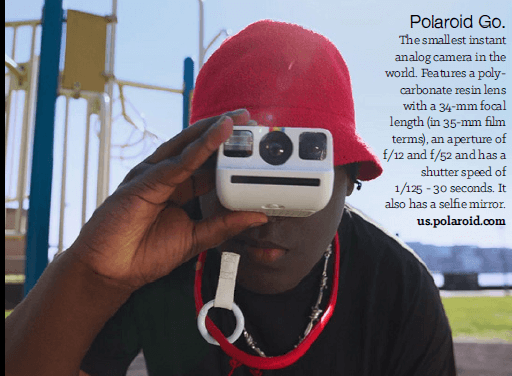 The smallest instant
analog camera in the
world. Features a polycarbonate
resin lens
with a 34-mm focal
length (in 35-mm film
terms), an aperture of
f/12 and f/52 and has a
shutter speed of
1/125 - 30 seconds. It
also has a selfie mirror.
us.polaroid.com
The smallest instant
analog camera in the
world. Features a polycarbonate
resin lens
with a 34-mm focal
length (in 35-mm film
terms), an aperture of
f/12 and f/52 and has a
shutter speed of
1/125 - 30 seconds. It
also has a selfie mirror.
us.polaroid.com
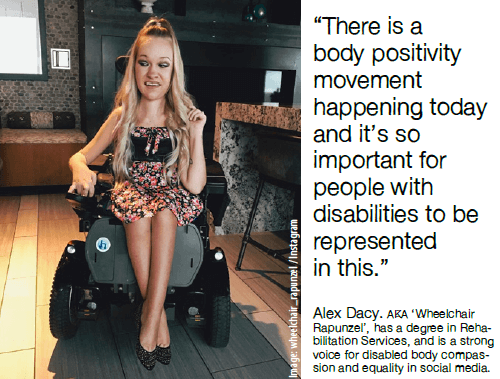
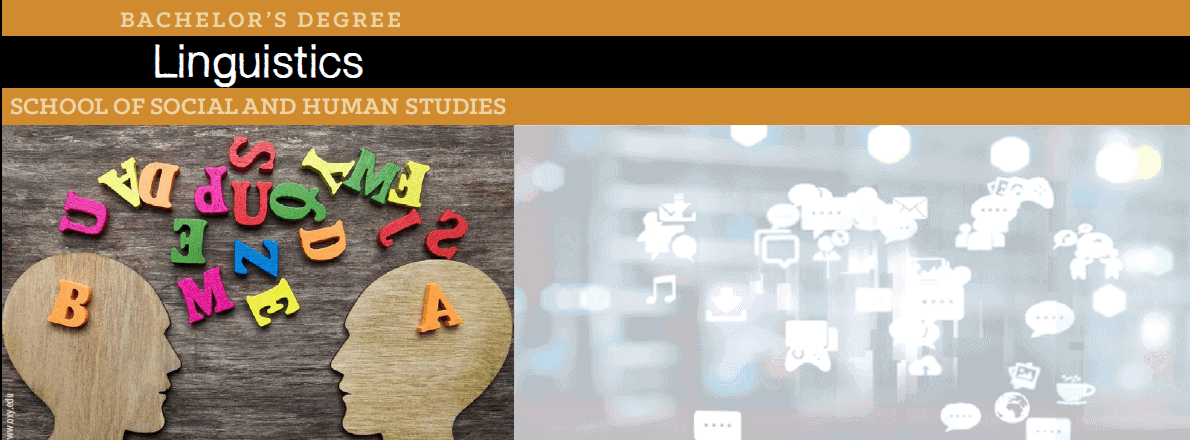 The Bachelor of Linguistics (BA)
program objective is to help students
develop a strong foundation in
literature, literary theory, and writing
allowing for a gain in comprehensive
understanding of Linguistics. The
Bachelor of Linguistics (BA) program
is offered online via distance learning.
After evaluating both academic record
and life experience, AIU staff working
in conjunction with Faculty and
Academic Advisors will assist students
in setting up a custom-made program,
designed on an individual basis. This
flexibility to meet student needs is
seldom found in other distance learning
programs. Our online program
does not require all students to take
the same subjects/courses, use the
same books, or learning materials.
Instead, the online Bachelor of
Linguistics (BA) curriculum is designed
individually by the student and
academic advisor. It specifically addresses
strengths and weaknesses with
respect to market opportunities in the
student’s major and intended field of
work. Understanding that industry
and geographic factors should influence
the content of the curriculum
instead of a standardized one-fits-all
design is the hallmark of AIU’s unique
approach to adult education. This
philosophy addresses the dynamic and
constantly changing environment of
working professionals by helping adult
students in reaching their professional
and personal goals within the scope of
the degree program.
The Bachelor of Linguistics (BA)
program objective is to help students
develop a strong foundation in
literature, literary theory, and writing
allowing for a gain in comprehensive
understanding of Linguistics. The
Bachelor of Linguistics (BA) program
is offered online via distance learning.
After evaluating both academic record
and life experience, AIU staff working
in conjunction with Faculty and
Academic Advisors will assist students
in setting up a custom-made program,
designed on an individual basis. This
flexibility to meet student needs is
seldom found in other distance learning
programs. Our online program
does not require all students to take
the same subjects/courses, use the
same books, or learning materials.
Instead, the online Bachelor of
Linguistics (BA) curriculum is designed
individually by the student and
academic advisor. It specifically addresses
strengths and weaknesses with
respect to market opportunities in the
student’s major and intended field of
work. Understanding that industry
and geographic factors should influence
the content of the curriculum
instead of a standardized one-fits-all
design is the hallmark of AIU’s unique
approach to adult education. This
philosophy addresses the dynamic and
constantly changing environment of
working professionals by helping adult
students in reaching their professional
and personal goals within the scope of
the degree program.
 Atlantic International University is accredited by the Accreditation Service for International
Schools, Colleges and Universities (ASIC). ASIC Accreditation is an internationally
renowned quality standard for colleges and universities. Visit ASIC’s Directory of Accredited
Colleges and Universities. ASIC is a member of CHEA International Quality Group
(CIQG) in the USA, an approved accreditation body by the Ministerial Department of the Home Office
in the UK, and is listed in the International Directory of the Council for Higher Education Accreditation
(CHEA). The University is based in the United States and was established by corporate charter in 1998.
Atlantic International University is accredited by the Accreditation Service for International
Schools, Colleges and Universities (ASIC). ASIC Accreditation is an internationally
renowned quality standard for colleges and universities. Visit ASIC’s Directory of Accredited
Colleges and Universities. ASIC is a member of CHEA International Quality Group
(CIQG) in the USA, an approved accreditation body by the Ministerial Department of the Home Office
in the UK, and is listed in the International Directory of the Council for Higher Education Accreditation
(CHEA). The University is based in the United States and was established by corporate charter in 1998.
 In some cases, accredited colleges
may not accept for transfer courses and degrees
completed at unaccredited colleges, and some
employers may require an accredited degree as
a basis for eligibility for employment. Potential
students should consider how the above may affect
their interests, AIU respects the unique rules and
regulations of each country and does not seek to
influence the respective authorities. In the event
that a prospective student wishes to carry out any
government review or process in regards to his
university degree, we recommend that the requirements
of such are explored in detail with the relevant
authorities by the prospective student as the
university does not intervene in such processes.
AIU students can be found in over 180 countries,
they actively participate and volunteer
in their communities as part of their academic
program and have allocated thousands of service
hours to diverse causes and initiatives. AIU
programs follow the standards commonly used by
colleges and universities in the United States with
regards to the following: academic program
structure, degree issued, transcript, and
other graduation documents.
AIU graduation documents can include
an apostille and authentication from the
US Department of State to facilitate their
use internationally.
In some cases, accredited colleges
may not accept for transfer courses and degrees
completed at unaccredited colleges, and some
employers may require an accredited degree as
a basis for eligibility for employment. Potential
students should consider how the above may affect
their interests, AIU respects the unique rules and
regulations of each country and does not seek to
influence the respective authorities. In the event
that a prospective student wishes to carry out any
government review or process in regards to his
university degree, we recommend that the requirements
of such are explored in detail with the relevant
authorities by the prospective student as the
university does not intervene in such processes.
AIU students can be found in over 180 countries,
they actively participate and volunteer
in their communities as part of their academic
program and have allocated thousands of service
hours to diverse causes and initiatives. AIU
programs follow the standards commonly used by
colleges and universities in the United States with
regards to the following: academic program
structure, degree issued, transcript, and
other graduation documents.
AIU graduation documents can include
an apostille and authentication from the
US Department of State to facilitate their
use internationally.
| Dr. Franklin Valcin President/Academic Dean |
Dr. José Mercado Chief Executive Officer Chairman of the Board of Trustees |
Ricardo González, PhD Provost |
| Dr. Ricardo Gonzalez Chief Operation Officer and MKT Director |
Linda Collazo Logistics Coordinator |
Dr. Silvia Restorff Academic Advisor |
| Dr. Miriam Garibaldi Viceprovost for Research |
Irina Ivashuk Alumni Association Coordinator |
Dr. Prakash Menon Academic Advisor |
| Dr. Ofelia Miller Director of AIU |
Clara Margalef Director of Special Projects of AIU |
Carlos Aponte Telecommunications Coordinator |
| Juan Pablo Moreno Director of Operations |
David Jung Corporate/Legal Counsel |
Dr. Nilani Ljunggren De Silva Academic Advisor |
| Paula Viera Director of Intelligence Systems |
Bruce Kim Advisor/Consultant |
Dr. Scott Wilson Academic Advisor |
| Felipe Gomez Design Director / IT Supervisor |
Thomas Kim Corporate/ Accounting Counsel |
Dr. Mohammad Shaidul Islam Academic Advisor |
| Daritza Ysla IT Coordinator |
Camila Correa Quality Assurance Coordinator |
Dr. Edgar Colon Academic Advisor |
| Nadeem Awan Chief Programming Officer |
Maricela Esparza Administrative Coordinator |
Deborah Rodriguez Academic Tutor Coordinator |
| Dr. Jack Rosenzweig Dean of Academic Affairs |
Chris Benjamin IT and Hosting Support |
Cyndy Dominguez Academic Tutor Coordinator |
| Dr. Edward Lambert Academic Director |
Mayra Bolivar Accounting Coordinator |
Kinmberly Diaz Admissions Support Tutor |
| Dr. Ariadna Romero Advisor Coordinator |
Roberto Aldrett Communications Coordinator |
Amalia Aldrett Admissions Coordinator |
| Nadia Gabaldon Academic Coordinator |
Giovanni Castillo IT Support |
Sandra Garcia Admissions Coordinator |
| Jhanzaib Awan Senior Programmer |
Jaime Rotlewicz Dean of Admissions |
Jose Neuhaus Admissions Support |
| Leonardo Salas Human Resource Manager |
Dr. Mario Rios Academic Advisor |
Junko Shimizu Admissions Coordinator |
| Benjamin Joseph IT and Technology Support |
Michael Phillips Registrar’s Office |
Veronica Amuz Admissions Coordinator |
| Rosie Perez Finance Coordinator |
Rene Cordon Admissions Support |
Alba Ochoa Admissions Coordinator |
| Chris Soto Admissions Counselor |
Jenis Garcia Admissions Counselor |
|
 The School of Business and Economics
allows aspiring and practicing
professionals, managers, and entrepreneurs
in the private and public sectors
to complete a self paced distance
learning degree program of the highest
academic standard.
The ultimate goal is to empower
learners and help them take advantage
of the enormous array of resources
from the world environment in order
to eliminate the current continuum of
poverty and limitations.
Degree programs are designed for
those students whose professional experience has been in business,
marketing, administration, economics,
finance and management.
The School of Business and Economics
allows aspiring and practicing
professionals, managers, and entrepreneurs
in the private and public sectors
to complete a self paced distance
learning degree program of the highest
academic standard.
The ultimate goal is to empower
learners and help them take advantage
of the enormous array of resources
from the world environment in order
to eliminate the current continuum of
poverty and limitations.
Degree programs are designed for
those students whose professional experience has been in business,
marketing, administration, economics,
finance and management.
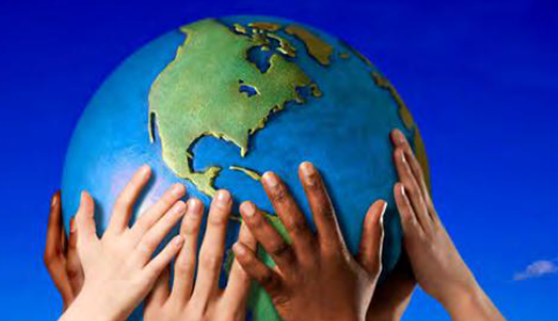 The School of Social and Human Studies
is focused on to the development of
studies which instill a core commitment
to building a society based on social and
economic justice and enhancing opportunities
for human well being.
The founding principles lie on the
basic right of education as outlined
in the Declaration of Human Rights.
We instill in our students a sense of
confidence and self reliance in their
ability to access the vast opportunities
available through information channels,
the world wide web, private, public,
nonprofit, and nongovernmental organizations in an ever expanding
global community.
Degree programs are aimed towards
those whose professional life has been
related to social and human behavior,
with the arts, or with cultural studies.
The School of Social and Human Studies
is focused on to the development of
studies which instill a core commitment
to building a society based on social and
economic justice and enhancing opportunities
for human well being.
The founding principles lie on the
basic right of education as outlined
in the Declaration of Human Rights.
We instill in our students a sense of
confidence and self reliance in their
ability to access the vast opportunities
available through information channels,
the world wide web, private, public,
nonprofit, and nongovernmental organizations in an ever expanding
global community.
Degree programs are aimed towards
those whose professional life has been
related to social and human behavior,
with the arts, or with cultural studies.
 The School of Science and Engineering
seeks to provide dynamic, integrated,
and challenging degree programs
designed for those whose experience
is in industrial research, scientific production,
engineering and the general
sciences. Our system for research and
education will keep us apace with the
twenty-first century reach scientific
advance in an environmentally and
ecologically responsible manner to allow
for the sustainability of the human
population. We will foster among our
students a demand for ethical behavior,
an appreciation for diversity, an understanding
of scientific investigation, knowledge of design innovation, a
critical appreciation for the importance
of technology and technological change
for the advancement of humanity.
The School of Science and Engineering
seeks to provide dynamic, integrated,
and challenging degree programs
designed for those whose experience
is in industrial research, scientific production,
engineering and the general
sciences. Our system for research and
education will keep us apace with the
twenty-first century reach scientific
advance in an environmentally and
ecologically responsible manner to allow
for the sustainability of the human
population. We will foster among our
students a demand for ethical behavior,
an appreciation for diversity, an understanding
of scientific investigation, knowledge of design innovation, a
critical appreciation for the importance
of technology and technological change
for the advancement of humanity.
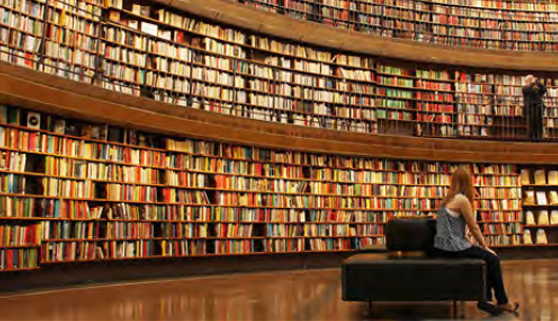 With access to a global catalog created and maintained collectively by more than
9,000 participating institutions, AIU students have secured excellent research
tools for their study programs.
With access to a global catalog created and maintained collectively by more than
9,000 participating institutions, AIU students have secured excellent research
tools for their study programs.